Last Updated: 07/05/2025
Why Does My Dog...?
Do you often find yourself wondering why your dog does certain things? Take a read through the most unusual and quirky behaviours and the reasons behind them.
Author: Dr Belinda Stancombe BVSc (Hons)
Reading Time: 9 minutes - short read
Dogs can be funny, quirky and sometimes just downright weird! No matter how unusual our dog's behaviour can be, we love them just the same.
But have you ever found yourself wondering, Why Does My Dog??? While we may find some doggy habits a bit weird, and let's face it, gross at times, for our dogs these behaviours make sense, and there is often a biological or learned reason behind them.
Our vets have decoded the reasons behind some of our canine companions most unusual traits and quirky behaviours. Discover if your dog's weird habit is on the list!
Follow Me Everywhere?
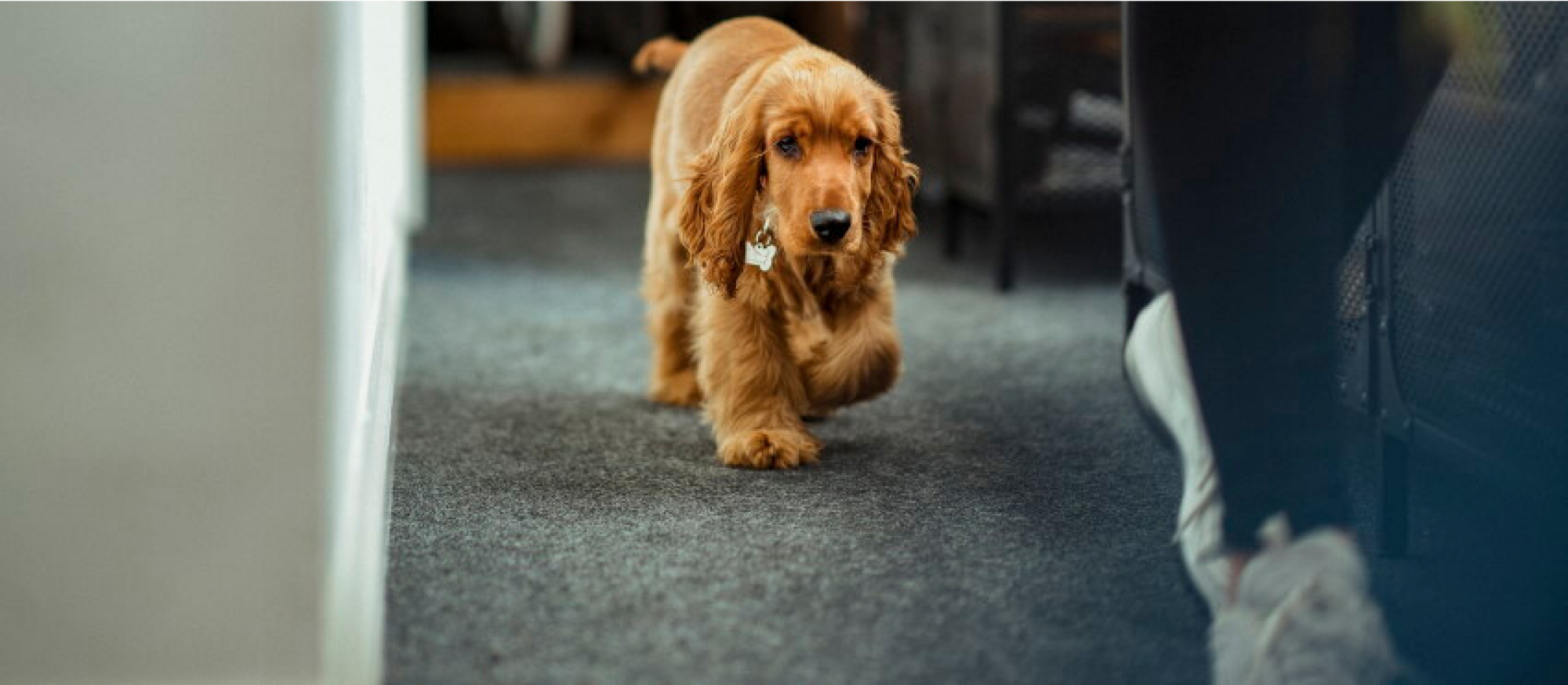
It is natural for us to want to spend time with our dog and for them to want to spend time with us. But for some dogs they can take spending quality time together, to a whole new level. Have you ever found yourself wondering, "Why does my dog follow me everywhere...and I mean everywhere (even to the toilet!!!)"
Dogs are social animals, so wanting to be around the people they live with is natural and instinctive behaviour. Often, dogs that live in a family, will choose one particular person to follow around. This is often the person that provides them with all the things they love best such as food, playtime or affection.
Dogs that love to follow owners around are affectionately known as 'velcro dogs'. For dog breeds such as working dogs, being side by side with their human is part of their 'job' and what they are bred for. The Hungarian Vizsla breed are known for being the ultimate 'velcro dog' and are happiest right by their humans side. Other common 'velcro breeds' include the Labrador, Border Collie, Maltese, Golden Retriever and German Shepherd.
In some cases, dogs that are very attached to their owners side, can show problem behaviours such as separation anxiety.
So what is the difference between a 'velcro dog' and one with separation anxiety? The main difference is that dogs that suffer from separation anxiety are anxious or panic when their owner is not with them. These dogs may show problem behaviours such as destruction of property, escaping, restlessness and inappropriate toileting when left alone.
Although 'velcro dogs' are more prone to developing anxiety issues, separation anxiety can occur in any dog breed. Dogs that suffer from separation anxiety may benefit from a consultation with a veterinarian or behavioural specialist, plus the introduction of anti-anxiety supplements or diets, pheromones or interactive toys.
Looking for more information on Separation Anxiety? Read our veterinary written article Managing Separation Anxiety In Dogs.
Top Products For Anxious Dogs:
Walk In Circles Before Lying Down?
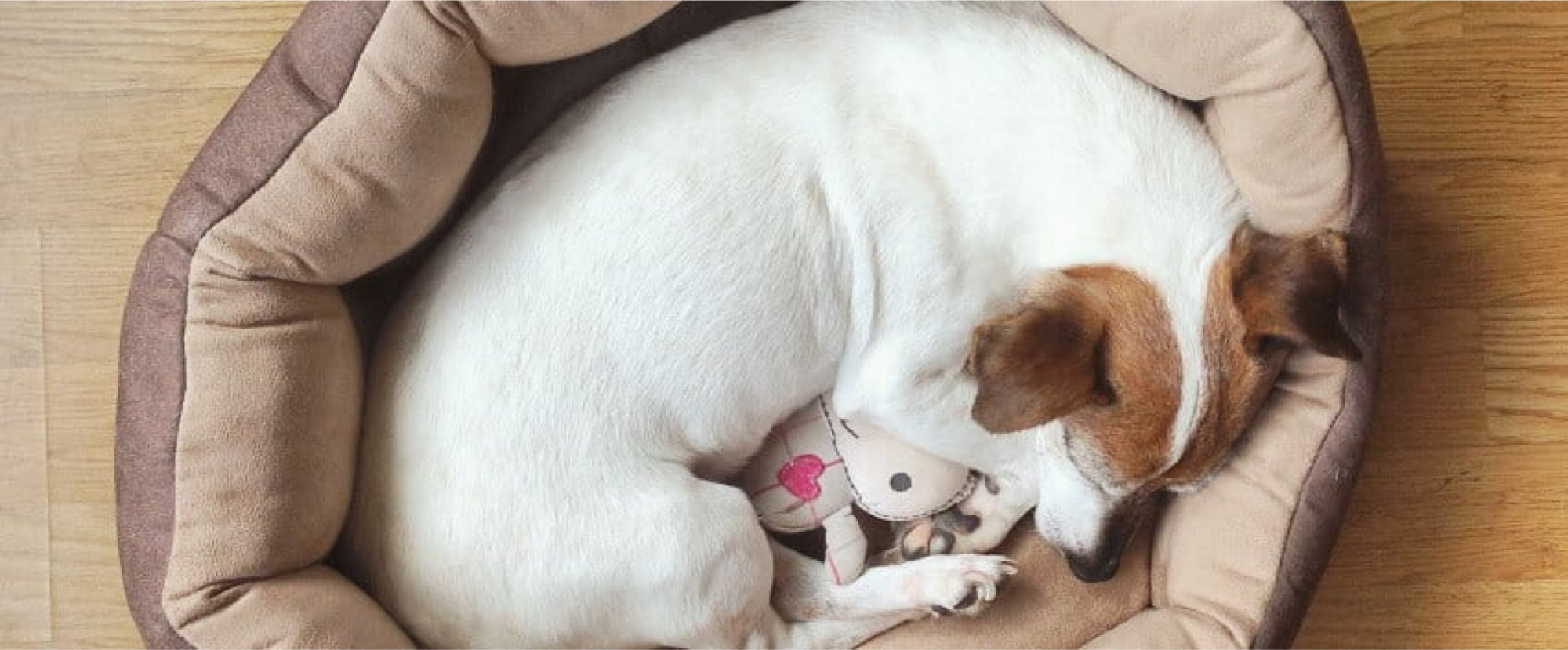
Have you ever noticed that some dogs circle around in one spot, wherever they have chosen to take a nap, before finally finding the perfect spot and settling down to go to sleep? Although dogs have been domesticated for centuries, this behaviour is believed to date back to their wild ancestors.
Plush, comfy dog beds have not always been around so our dog's wild ancestors would circle like this to flatten any grass or leaves to make a comfy, soft bed. This would also serve to scare off any snakes or insects and keep them safe at rest time.
Lick Their Paws All The Time?
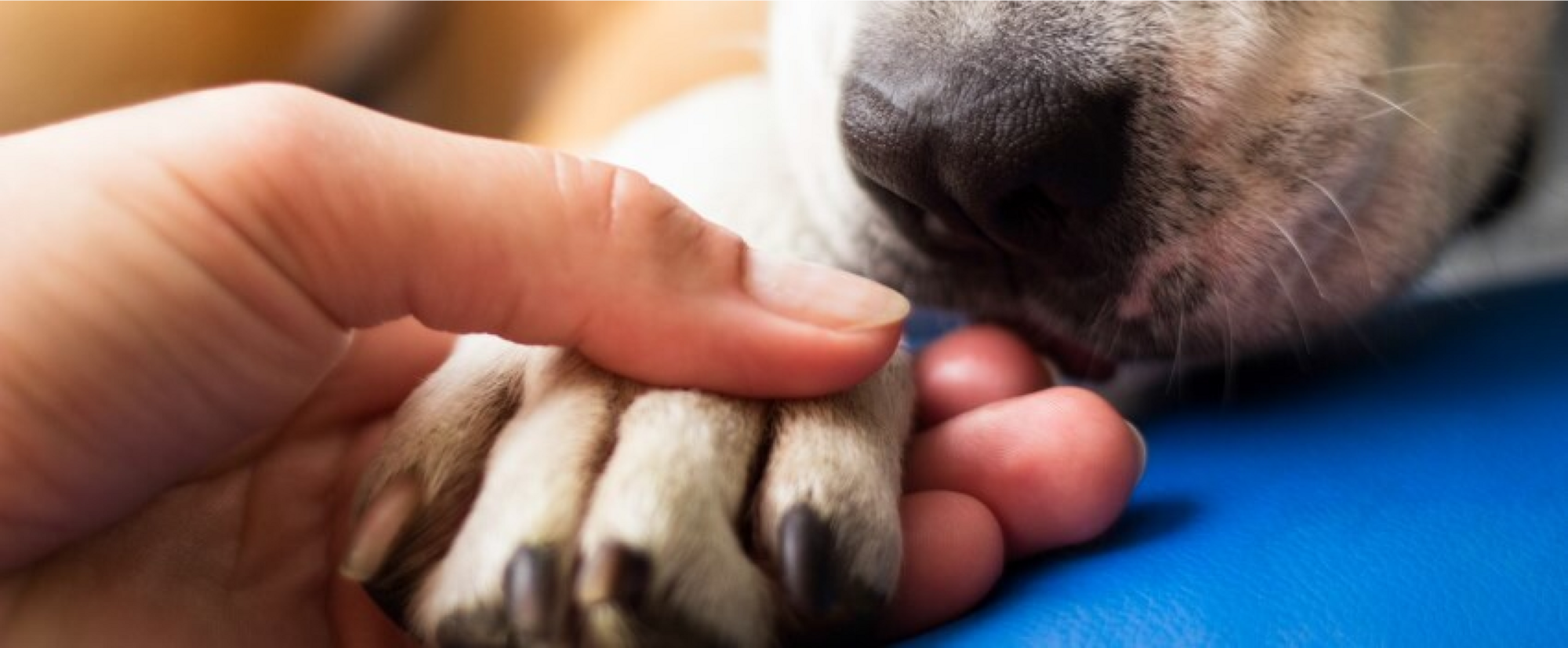
Paw licking is a common concern of pet owners. It is normal for a dog to lick their paws from time to time as a normal part of grooming, but excessive licking may indicate an underlying condition. Common causes of feet licking can including injuries, allergies, infections, skin issues or anxiety.
Allergies are overwhelmingly the most common cause of feet licking in dogs. The feet are itchy, so the dog will lick to soothe them. Allergies can occur due to something in the environment such as grass or plants or your pet my have a food sensitivity. Finding the cause of the allergy can be challenging. Your veterinarian may recommend a hypoallergenic diet trial, prescription medication to manage the itchiness or may refer you to a veterinary dermatologist for allergy testing. It is important to remember that allergies can not be cured, the symptoms can only be managed.
Dogs that lick their feet excessively and damage the skin layer, can be prone dermatitis and secondary bacterial or fungal infections. Medication such as antibiotic or antifungals, may be required from your veterinarian to treat the secondary condition. Bathing your dog's feet in a medicated shampoo such as Malaseb twice a week, can help soothe your dog's feet and decrease the risk of secondary infection. Omega 3 supplements are a great way to strengthen your dog's skin layer, and decrease the risk of dermatitis.
Some dogs will lick their feet due to boredom or to alleviate stress. Licking releases endorphins in your dog's brain which can help them feel calmer and self soothe during stressful periods. In extreme cases dogs can develop obsessive-compulsive behaviours associated with licking and may require anti-anxiety medication and extensive training.
Looking for more information on Allergies in Dogs? Read our veterinary written article Why Does My Dog Have Sensitive Itchy Skin?.
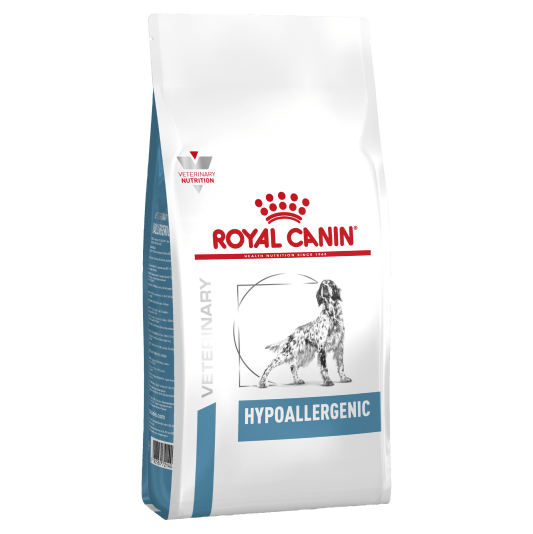
Eat Poop? Yuck!!
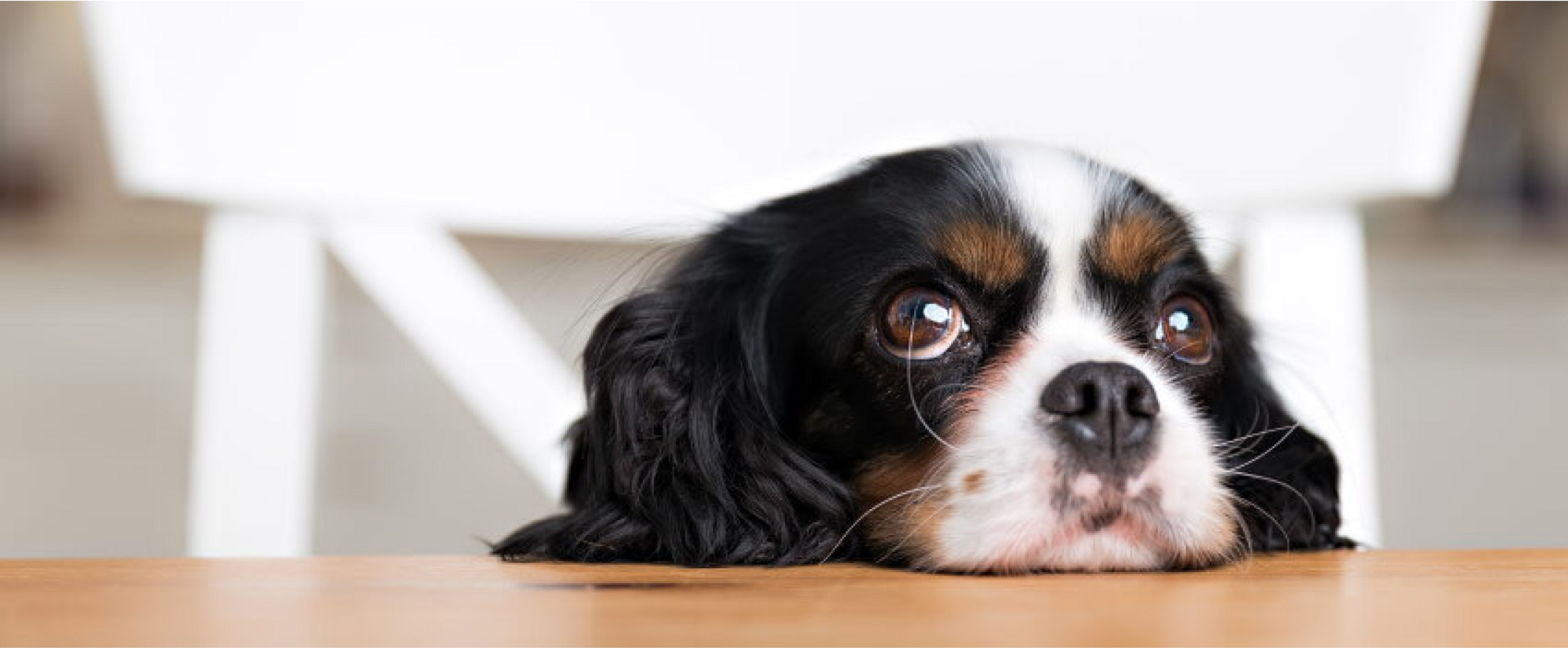
Let's face it, dog's can be pretty gross, but of all the disgusting behaviours that dogs show, nothing offends owner's more than when their dog eats poo. Whether it is eating the cats, a possums or their own, poo eating, and how to stop it, is a common owner concern.
So why do some dogs eat poo? To understand the reason behind this, we need to look back at our dog's ancestral roots. It is believed that wild dogs may have eaten faeces left lying around the den, to protect the pack from parasites. Another theory is that as scavengers, dogs ate faeces as a survival strategy when food was not readily available. So eating poop unfortunately, may be part of your dog's natural instincts.
Eating poo or Coprophagia, can be normal for dogs in certain situations. For example, mother dogs will lick puppies to urge them to 'toilet' in the weeks after their birth and will instinctively consume their poo to keep them clean. Puppies are naturally curious and while investigating their surroundings and playing, will often eat and play with their poo. Many puppies will grow out of this as they age.
For older dogs that suddenly adopt this behaviour, there can be underlying insufficiencies or medical reasons for for Coprophagia, so it is best to see your veterinarian.
Common Reasons For Adult Dog Coprophagia:
- Dietary Insufficiency
- Gastrointestinal disease
- Parasites
- Anxiety
- Boredom
So How Do You Stop Your Dog From Eating Poo? Some owners have success by adding pineapple juice, paw paw, yoghurt or cottage cheese to their dog's regular food. These ingredients alter the smell of the faeces and make it less desirable. Improving your dog's nutrition by feeding them a premium quality diet, providing them with more enrichment through interactive toys and exercise, or addressing underlying anxiety can also help to stop poo eating.
Looking for more information ? Read our veterinary written article Why Does My Dog Eat Poo?.
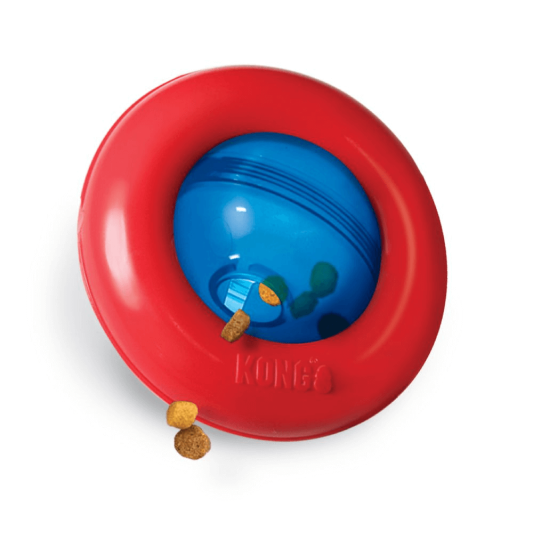
Twitch When They Are Sleeping?
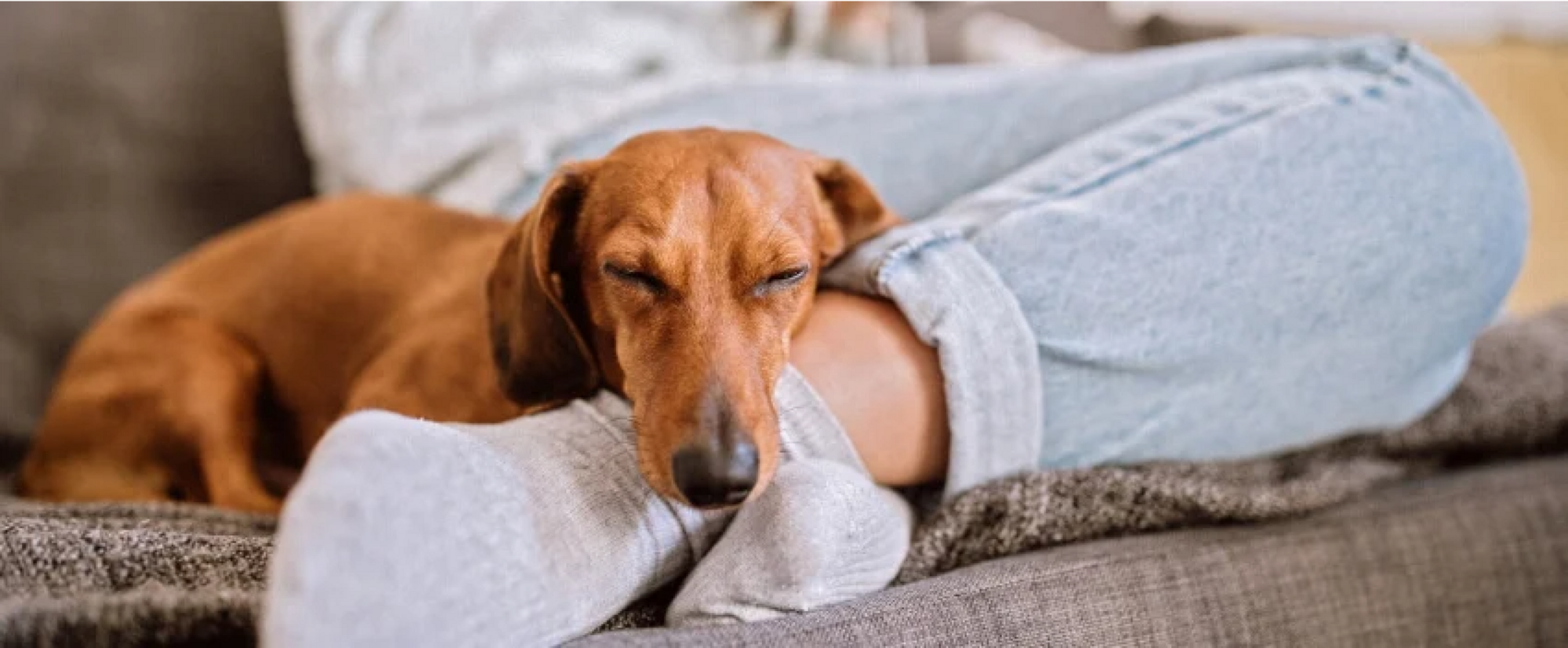
Like humans, dog's dream when they are sleeping. When dreaming they may twitch, vocalise and move their legs and paws, just like we do when we are dreaming.
Puppies tend to twitch and move more during sleep, something that pet owners can worry about, but it is completely normal. They do this because the pons, the part of the brain that regulates deep sleep, is underdeveloped. As the dog and their brain matures, they have less animated sleep.
Just like humans, dogs have sleep cycles and will enter into REM (Rapid Eye Movement) around 20 minutes into sleep. During REM sleep, breathing will increase, the eyes move about and intense dreams are more likely. In general for reasons unknown, smaller dogs tend to have shorter dream periods compared to larger dogs.
Figuring out what our dogs dream about is somewhat challenging. Research has indicated that dogs are likely to dream about dog things......chasing a ball, barking at the postman, eating a snack. Not all dreams are happy though, and dogs can suffer from bad dreams or nightmares. While this is may be difficult to watch as an owner, waking your dog from a nightmare can be dangerous as they may lash out in fear before they are fully wake up. In these cases it is best to 'let sleeping dogs lie'.
Pee When They Are Excited?
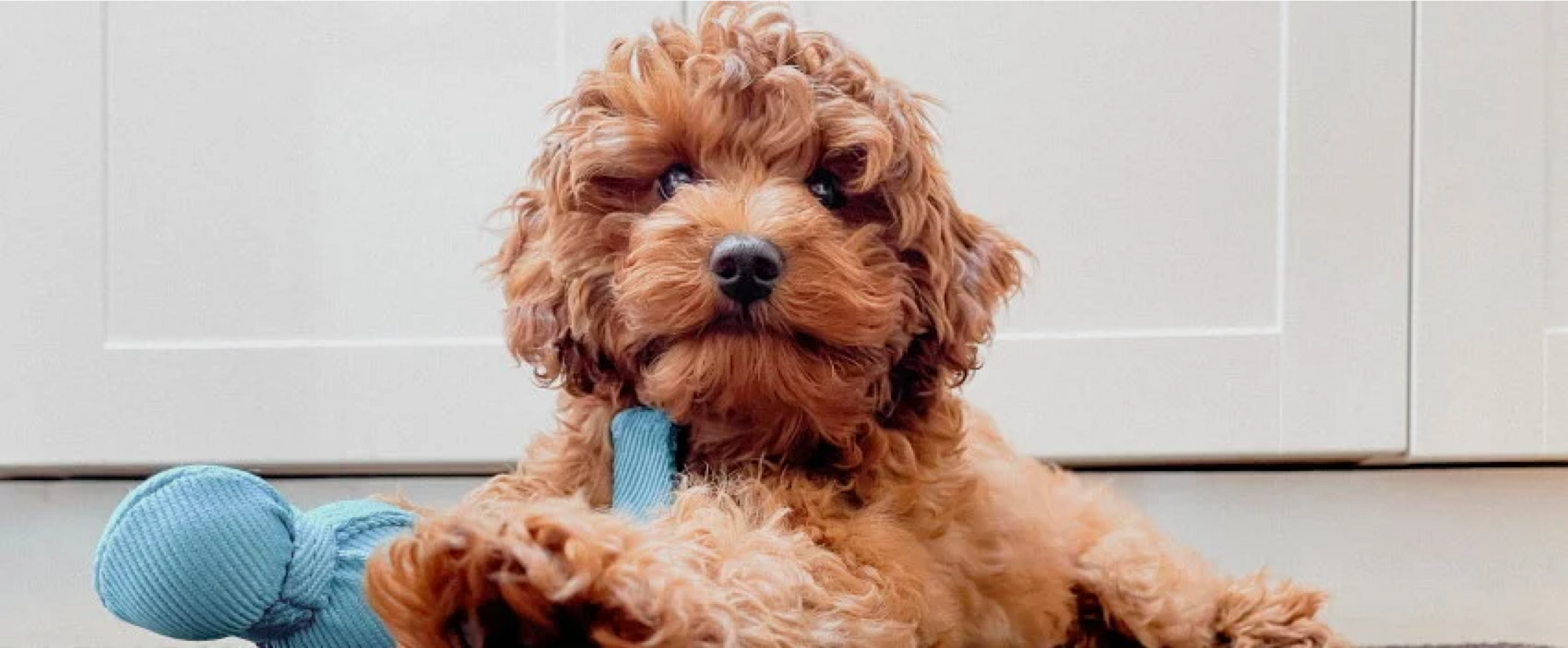
Have you ever noticed your dog urinates when they are excited to see you? Maybe they pee when scared by something, or when they are greeted by someone new?
Dogs can accidentally urinate because they are excited, scared or being submissive. Excited urination is common in puppies. This will often happen when you greet your puppy when arriving home and they get excited and accidentally urinate. This is not a toilet training issue and is not something that your puppy can control. Puppies like children have poor bladder control and it is often something that they grow out of.
Dogs use pee to communicate. Think of how many times your dog will stop to smell another dog's wee when out for a walk. They are gathering information. Dogs demonstrate their hierarchy through a series of behaviours. Dogs that show submissive behaviours such as avoiding eye contact, tail tucking, getting low to the ground or rolling over and urinating, are trying to communicate that they are not a threat to the more dominant members of the pack.
Dogs and puppies submissively urinate to demonstrate to owners that they see you as dominant. For a dog, this behaviour is normal and complete involuntary. Dogs that are nervous, shy or fearful are more likely to develop submissive urination that extends into adulthood. Socialising your puppy or dog, and boosting their self confidence through training can help them be less fearful and more confident. Never punish your dog for accidents as this often only makes the problem worse.
Looking for more information? Read our veterinary written article How To Stop Submissive Urination.
Have Glow In The Dark Eyes?
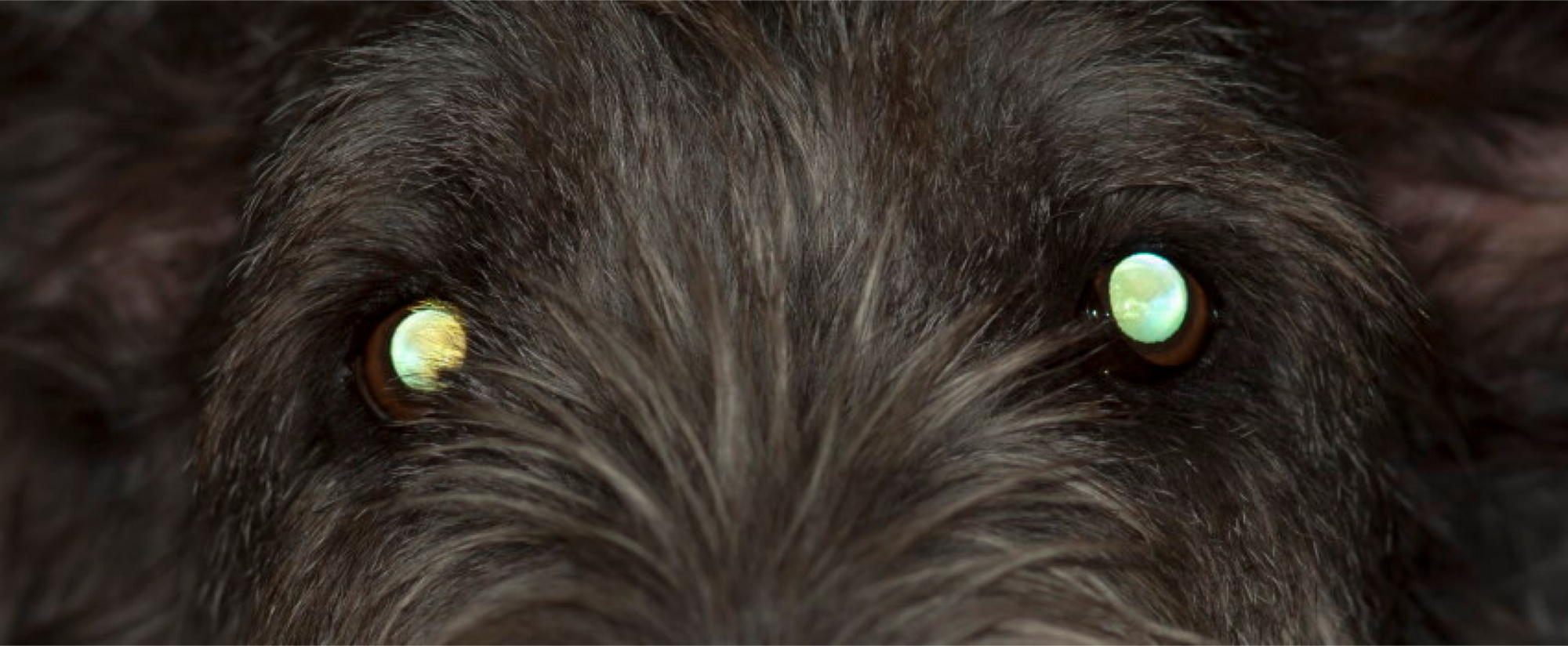
Have you ever noticed that your dog's eyes glow at night when a light shines in them? Or have you ever tried to take a photo using the flash, only to find glowing eyes staring back at you!?
Unlike humans, dogs have a much higher concentration of rod receptors in their eyes, as well as an additional layer of tissue called a Tapetum Ludicum. This tissue layer sits behind the retina and reflects light back, to hit the receptors a second time. This reflection gives light a second chance to hit the animal's rod receptors which in turn help to enhance their night vision. This reflection is known as eye shine and is the 'glowing' that we see from our dog's eyes when we shine a bright light in a dark environment.
Eye shine colour can vary, based on a dog's breed, age or eye colour. Puppies are generally born with an eye shine colour that is orange to red, but this can change as the puppy matures. Adult dog eye shine colours can vary from red, yellow, green and even a beautiful turquoise seen in some Schnauzer breeds.
Further Reading
Want to know more? Check out our Discover Page for more tips on keeping your pets happy and healthy.